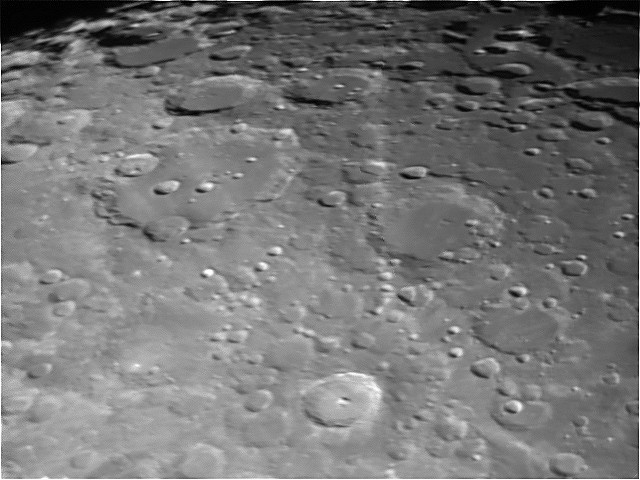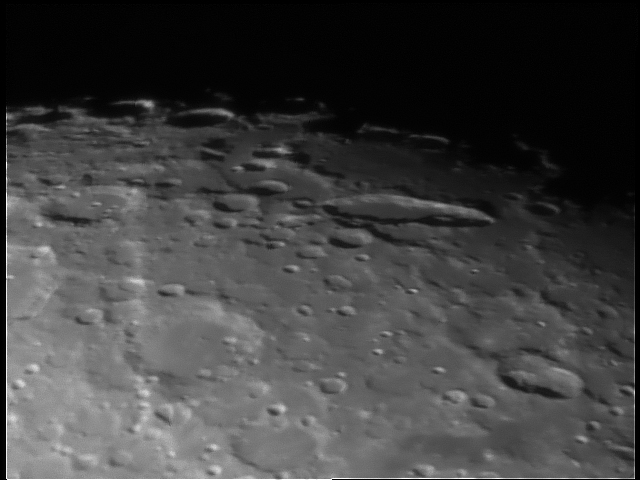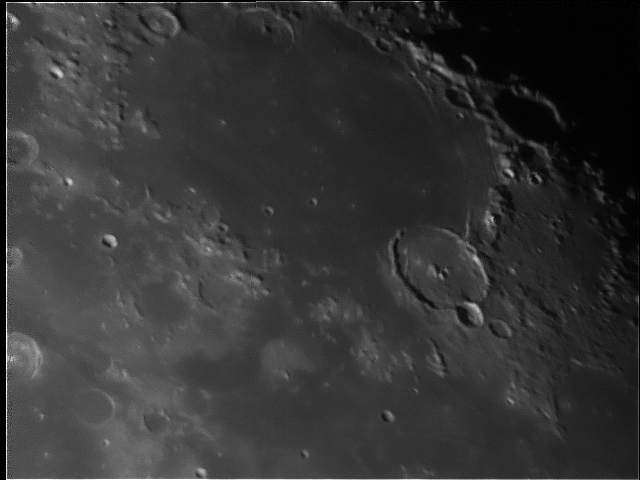....take images of the moon! Last night, with the moon blazing bright in the night sky, I gave up on doing any DSO imaging after my test shots came out totally washed out in purple. I decided to take a few more periodic error measurements and call it a night early. But before that I figured I would try my hand at some moon images. Upon getting the moon in view of my DMK firewire camera I could tell this would be difficult because the moon was shimmering and shaking all over the place due to below-average seeing. The DMK camera is capable of higher frame rates to help get around the problem with poor seeing conditions. I bought the camera initially for dual-use as an autoguiding camera and a planetary camera. The folks at ImagingSource added long-exposure capability so now my DMK is a triple threat! So far I have only used the little blue camera for autoguiding. I am taking things slow and plan to tackle lunar and planetary imaging someday. For now I just recorded a few AVI files and ran them through RegiStax software, all the while not really knowing what I was doing. The results are not too bad considering the poor seeing conditions.
The first image shows the bright crater Tycho at the bottom, with south being up in this image. Crater Clavius is the large crater to the upper left of Tycho:

The next images moves a bit to the west, and shows one of my favorite lunar features, crater Schiller above and right of center. I have always found the elongated crater very interesting:

My final lunar imaging of the night moves a little north to another one of my favorite sites. This is the Mare Humorum area, with crater Gassendi to the lower right of center.

That's it for now. I still have a lot to learn about lunar imaging and working with the RegiStax software. But like I said before, I am taking things slowly, and one step at a time.



No comments:
Post a Comment